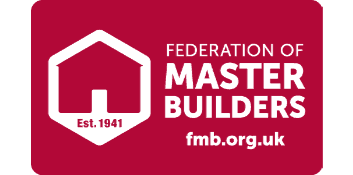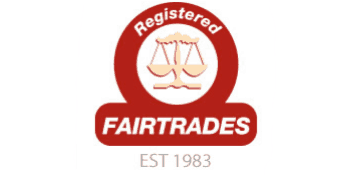An unpleasant smell in your bedroom or mould growing on your window frames could be a sign of condensation
It is uncomfortable and unhealthy to live in a house where mould and moisture have formed, leaving the place smelling musty. Damp problems must be sorted out immediately after encountering them.
Condensation also destroys plaster-work, the interior walls, window frames and timber including skirting boards.
Any structure that experiences chilly air condensing on cold surfaces in the winter will exhibit symptoms of condensation.
For advice call our condensation experts today on 020 7458 4864.
WHAT CAUSES CONDENSATION?
There are many reasons for the mould to appear and infest. During winter, for instance, the air inside the building is usually on the warmer side due to internal heating elements. But when the warm air cools below the dew point and touches chilly surfaces like windows and walls, it leads to the formation of condensation and mould.
Condensation is usually witnessed during winter months and is mostly caused due to:
- Poor heating
- Lack of ventilation while showering or cooking
- Wet clothes hung up to dry
- Leaking drain or water pipe
- Roof leak
Maintaining adequate room temperatures and wiping the water droplets at once will minimize mould formation.
Preventing condensation
Preventing condensation involves proper ventilation and heating of your home, to release moist air from the rooms.
Condensation disappears after cold months. Therefore, to avoid condensation issues throughout the winter, it is advised to remain vigilant.
Kitchens and bathrooms are more prone to condensation than other rooms in the house. Because dehumidifiers pull in air, chill it, and then reheat it to recirculate, they can help reduce condensation from accumulating in buildings.
Our experts at London Damp Specialists Ltd will quickly assess the dampness in your home, diagnose the exact source and type of dampness and medicate treatment to safeguard your property and the health of its occupants.
Condensation Control London
Here at London Damp Specialists Ltd we are experts in all areas of condensation and how to avoid it. Get in touch with us today to discuss your requirements and let us visit your property or business to analyse the condensation problem and come up with a suitable remedy. Call our experienced team today on 020 7458 4864.
How You Can Stop Condensation
Condensation can be verified by sealing the room with a dehumidifier to run for a recommended time and measuring air humidity and temperature with
metres and other instruments.
If the humidity goes away, then the problem is condensation. Inadequate air circulation and temperature control can make condensation worse. The symptoms include water droplets on windows and walls with dark mould appearance and an unpleasant odour. Condensation damages paint and plaster with mould patches and decays window frames and skirting boards.
Preventing condensation problems involves proper ventilation to free the room from moist air and improving the heating facility to keep the ambient temperature steady without changing the moisture levels. Zones in the house where condensation will mostly occur are in the kitchen and bathrooms.
The best way to keep condensation low and prevent mould growth is to wipe away the water droplets with a cloth after finding them and allowing a passage of air in places of little air movement.
Eliminating unwanted cold surfaces, and using special insulation on the outside wall and inside cavity walls to improve thermal dynamics may help overcome condensation. Introducing a dehumidifier is acceptable to prevent condensation as it draws in air, removes moisture, and reheats to re-circulate.
Faulty ventilation inside a given space leads to the formation of condensation. Blocking off air vents, windows, and other exits causes condensation. Natural ventilation by unblocking or opening the windows often reduces the condensing effect. Different heating temperatures induce condensation in other rooms, so intermittent heating improves condensation and prevents mould growth.
Cavity walls and solid walls hold tiny water droplets after condensation so insulating with special insulation materials can prevent condensation. Maintaining adequate room temperatures and wiping the water droplets at once will minimise mould formation and condensation. Places with little to no air movement cause condensation, and this can be reduced by fitting dehumidifiers that cool down the air before re-circulating it as warm air.
Condensation disappears after cold months. Hence it is advisable to stay alert during the months of winter to overcome condensation.
What if condensation is not caused by poor ventilation?
Remember: condensation can be caused by a more serious condition such as rising damp or penetrating damp. Book your free damp survey with London Damp Specialists and call us for expert advice.
Still have mould and condensation?
If you've tried all the previous suggestions and your property is still plagued by mould and dampness on your solid outer walls, then our team can offer the perfect remedy.
Because of the outside walls' temperatures, it is very typical for mould and condensation to grow on your cold, solid outer walls. When warm moisture comes in contact with these walls it is highly likely condensation and then mould will appear. The only solution for this problem is to apply thermal plasterboard to these exterior walls.
Condensation treatment can include:
- Removal of blown plaster
- Apply waterproof render
- Fit thermal plaster board
- Plaster with skim finish
FREQUENTLY ASKED QUESTIONS
Immediate Actions: Simple actions like wiping away water droplets, opening windows for ventilation, or running a dehumidifier can have immediate effects, often showing improvement within hours or a day.
Short-Term Solutions: Implementing changes in heating and ventilation practices, using portable dehumidifiers, or adding temporary insulation might take a few days to a week to show significant results.
Long-Term Solutions: More comprehensive solutions like installing permanent dehumidification systems, insulating walls, or making structural changes to improve ventilation might take several weeks to a few months to complete and show full effectiveness.
Seasonal Considerations: Condensation often occurs during colder months, so some treatments might be ongoing throughout the winter, with constant monitoring and adjustments as needed.
Professional Assessment: In some cases, a professional assessment might be needed to identify the underlying causes and recommend specific treatments. This could add time to the overall process.
The wide range of potential causes and solutions for condensation means that there's no one-size-fits-all answer to how long treatment might take. The best approach is often to start with immediate actions and consult with our professionals if the problem persists, to develop a tailored plan that addresses the specific situation.
Mould and Mildew Growth: Persistent condensation creates a damp environment that can lead to the growth of mould and mildew. This not only damages surfaces but can also lead to health issues, particularly for those with allergies or respiratory conditions.
Damage to Walls and Ceilings: Over time, condensation can cause paint to peel and wallpaper to loosen. It can also lead to damp patches on walls and ceilings, which can weaken the structure.
Window Damage: Condensation on windows can cause wooden frames to rot and metal frames to rust, leading to long-term damage that may require costly repairs.
Damage to Possessions: Condensation can damage furniture, clothing, and other possessions, particularly if it leads to a consistently damp environment.
Poor Indoor Air Quality: The presence of mould and mildew can lead to poor indoor air quality, which may exacerbate health issues, particularly for those with asthma or other respiratory conditions.
Increased Energy Costs: A damp environment may require more heating to feel comfortable, leading to higher energy bills.
Aesthetic Issues: Persistent condensation can lead to unsightly water stains, mould growth, and other visible signs of dampness that can make the living environment less pleasant.
Potential Decrease in Property Value: If left untreated, condensation and the associated problems can decrease the value of a property, particularly if there is significant structural or cosmetic damage.
Electrical Hazards: In extreme cases, condensation near electrical outlets or fixtures can create a risk of short circuits or other electrical hazards.
Insect Infestation: Damp environments can attract certain insects, leading to potential infestations.
Bathrooms and kitchens are common sites due to steam from showers, baths, and cooking. Basements and cellars, often cooler and less ventilated, can also be prone to condensation, as can windows and doors where cold surfaces meet warm, moist indoor air.
Laundry rooms, unheated rooms, and areas near cold water pipes might experience condensation, and poorly insulated roof spaces, attics, garages, and outbuildings can be susceptible as well.
Even wardrobes and cupboards tightly packed with belongings may have restricted airflow, leading to condensation on external walls. Understanding these common areas can aid in taking preventive measures like improving ventilation and insulation, and managing humidity levels, to prevent potential issues related to condensation.
Emphasising natural ventilation, we recommend unblocking or opening windows to reduce the condensing effect. If needed, we utilise dehumidifiers to draw in air, cool it to remove moisture, and reheat it to recirculate, effectively controlling humidity levels.
We may also apply special insulation to the outside and inside cavity walls to improve thermal dynamics and help overcome condensation. Our approach includes maintaining a constant temperature without affecting humidity levels, promptly wiping away water droplets, and staying alert during winter months when condensation is more common.
Our comprehensive approach ensures that we address the root causes of condensation, providing effective and lasting solutions.
Proper Ventilation: Simply opening windows and using exhaust fans in areas like bathrooms and kitchens can improve airflow and reduce condensation without consuming much energy.
Use of Energy-Efficient Dehumidifiers: Modern dehumidifiers come with energy-saving features that can effectively reduce moisture levels without a significant impact on energy bills.
Insulation: Proper insulation of walls, windows, doors, and roofs can prevent condensation by keeping surfaces warm, reducing the need for additional heating.
Heat Recovery Ventilation Systems: These systems can recover heat from outgoing stale air and use it to warm incoming fresh air, maintaining a comfortable temperature without wasting energy.
Passive Ventilation: Utilising natural ventilation through strategically placed vents and openings can promote airflow without the need for powered fans.
Avoiding Overheating: Keeping heating at a consistent, moderate level rather than overheating can maintain a stable indoor environment that discourages condensation.
Using Lids While Cooking: Simple practices like using lids on pots while cooking can reduce steam and moisture, minimising condensation.
Drying Clothes Outdoors: Drying clothes outside or in a well-ventilated area rather than using a dryer can reduce moisture and save energy.
Regular Maintenance: Keeping gutters, drains, and ventilation systems clean and in good repair can prevent condensation problems without requiring additional energy consumption.
Utilising Plants: Some houseplants can absorb moisture from the air, acting as natural dehumidifiers.
Weatherstripping and Caulking: Sealing gaps around windows and doors can prevent cold air from entering and warm air from escaping, reducing the risk of condensation and saving on heating costs.
Using Solar Energy: If feasible, solar-powered ventilation fans or dehumidifiers can provide an energy-efficient solution.
By combining these strategies, it's possible to manage condensation in an energy-efficient manner that doesn't lead to increased utility costs. Many of these solutions are simple and low-cost but can be highly effective when implemented correctly. If condensation is a persistent problem, consulting with a professional who specialises in energy-efficient solutions might be a wise investment.
What happens next?
Call London Damp Specialists on 020 7458 4864.
Alternatively, you can book a survey online by completing your details below.
Once you have submitted the form, one of our surveyors will be in touch with you to discuss your problems within 24 hours.
Your free, no obligation damp survey will typically only take between 15 to 30 minutes.
30 year guarantee We also offer a 10 year insurance backed guarantee.
Free damp survey No obligation survey with detailed reports and quotations
Experienced & qualified Team qualified to industry standards (CSRT & CSSW)
Fully insured Public liability limit of indemnity £5million






